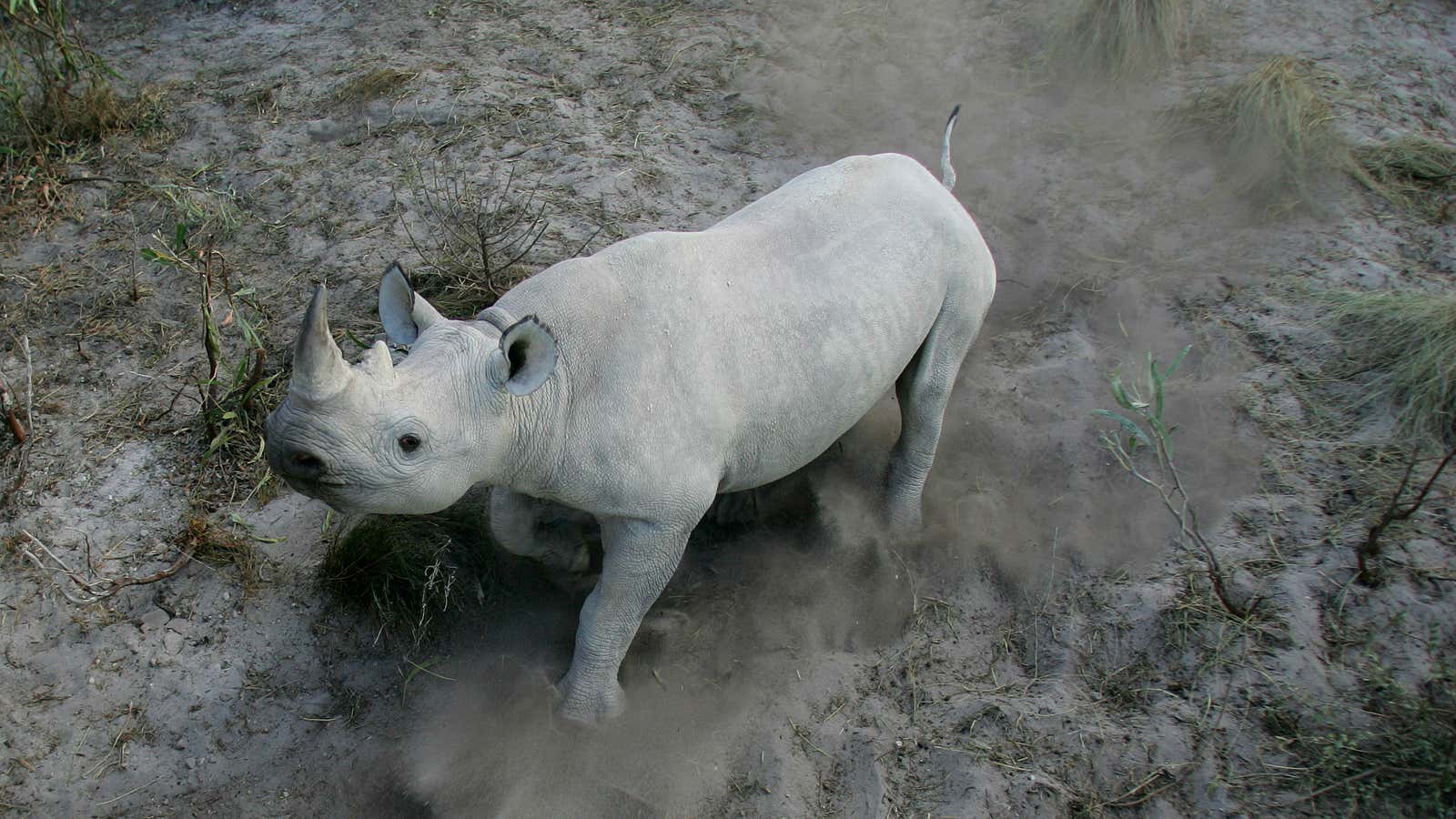A South African judge on Wednesday (Jan. 20) upheld a decision by a lower court to lift the government’s ban on domestic trading of rhino horns.
The decision has raised fears among conservation activists that it could undermine efforts to end rhino poaching, which is at record levels in South Africa.
“Reopening South Africa’s national rhino trade will make it even harder for already overstretched law enforcement agents to tackle record rhino poaching,” the World Wide Fund (WWF) said in a statement.
Game breeders John Hume and Johan Kruger won a judgement last November that lifted the moratorium against domestic trading, which has been in place since 2009. They argued that the government’s ban violated their constitutional rights to sell the horn. Hume claimed that the ban exacerbated poaching and, with it in place, he would’ve had to get rid of his 1,200 farmed rhinos.
The government’s appeal of that decision was rejected yesterday by the North Gauteng High Court.
South Africa is currently home to 20,000 rhinos, about 80% of the world’s rhino population. This population has been the target of a significant uptick in poaching: a 9,000% rise between 2007 and 2014, according to data from WWF. Efforts to combat the trend have included anti-poaching units, drones, dehorning, relocation of herds, and even anti-poaching dogs who can rappel from helicopters.
It is unclear who Hume and other rhino herders, will be able to sell the horns to. There is little demand for them in South Africa. Most of the demand for rhino horns comes from Asia, where the belief in their medicinal power makes them a pricey commodity worth up to $75,000 per kilogram. In Vietnam, rhino horn can fetch up to $100,000 per kilogram, due to the myth that ingesting the horn can cure cancer.
A ban in international trade in rhino horns has been in place under the Convention on International Trade in Endangered Species (CITES) since the 1970s, and activists say the only way to sell it is through illegal channels.
“It is inconceivable that anyone would buy it—unless they intend to sell it abroad illegally or they are speculating that international trade will be legalized,” WWF said in their statement.
South Africa will host the next CITES conference in Johannesburg later this year, and has said it would like to discuss whether lifting the international ban might help curb rhino poaching.
With only 29,000 rhinos left in the world, conservationists are saying the decision to restart domestic trade will only accelerate the rhino’s march towards extinction.
“This is the year in which poaching rates will likely overtake the rhinos’ natural rate of reproduction; the tipping point towards extinction for these iconic animals,” Teresa Telecky, Wildlife director for the Humane Society International, said in a statement sent to Quartz. “Amidst a rhino poaching crisis…this ruling will do nothing whatsoever to protect rhinos.”
